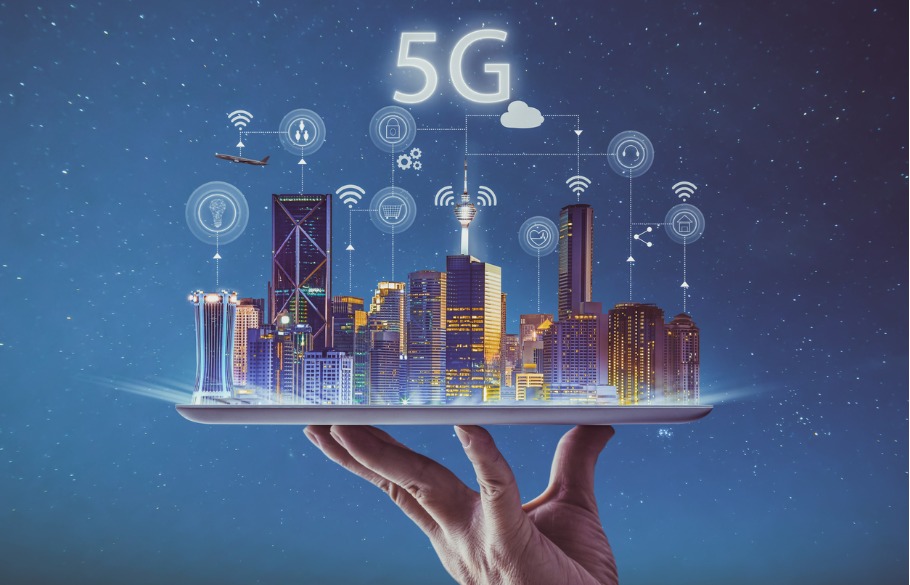
5G is coming to India next year; here’s all you need to know
The telecom department and private players Airtel, Vodafone Idea and RJio have ambitious plans for a commercial rollout

The Department of Telecommunications (DoT) has said the country is poised to see the commercial rollout of 5G services next year. Telecom operators such as Reliance Jio, Vodafone Idea and Airtel have already established 5G trials sites to facilitate a smooth launch.
Earlier this year, DoT had invited telecom firms (telcos) and other stakeholders to give their inputs on the sale and deployment of radio frequency spectrum — including 5G bands — over the next decade. All the incumbent telcos offer 4G services, and have expressed willingness to scale up to 5G.
Also read: Bank deposit insurance: Where it works, where it falls short
The indigenous 5G testbed project will be completed by the end of this week, said DoT. “Costing about ₹224 crore, the project is likely to be completed by December 31, 2021, paving the way for end-to-end testing of 5G user equipment (UE) and network equipment by 5G stakeholders developing 5G products/ services/ use cases, including indigenous start-ups, SMEs, academia and industry in the country,” said its statement.
Who will get it first?
Those living in Delhi, Gurugram, Mumbai, Bengaluru, Kolkata, Ahmedabad, Hyderabad and Pune will be the first to get 5G services in India. Apart from these cities, telcos have established 5G trials sites in Chandigarh, Jamnagar, Chennai, Lucknow, and Gandhinagar.
The 5G testbed project was funded by DoT, and eight implementing bodies participated in it — IIT-Bombay, IIT-Delhi, IIT-Hyderabad, IIT-Madras, IIT-Kanpur, IISC-Bangalore, SAMEER and CEWiT. These institutions have been working on the project for around three years.
The DoT also granted permission to telcos and handset manufacturers Ericsson, Nokia, Samsung and C-DOT for six-month trials. RJio and Airtel reported a peak speed of 1 Gbps each.
It may be noted that the Centre will have to hold 5G spectrum auctions. DoT, in September 2021, had approached the Telecom Regulatory Authority of India (TRAI) for recommendations regarding 5G spectrum auction. It also sought guidelines on other modalities such as band plan, block size, reserve price, and the quantum of spectrum.
What will 5G bring to your phone?
5G, the fifth-generation technology standard for broadband networks worldwide, offers far greater speed than 4G. According to US-based telecom tech firm Qualcomm, “5G enables a new kind of network that is designed to connect virtually everyone and everything together including machines, objects, and devices”.
The technology around 5G is meant to deliver higher multi-Gbps peak data speeds, ultra-low latency, more reliability, massive network capacity, increased availability, and a more uniform user experience to more users, says Qualcomm.
5G works in three bands —low, mid and high frequency spectrum. The low band spectrum offers coverage and speed of internet and data exchange, but this is capped at 100 Mbps. While sufficient for individual users who use their phones for very basic requirements, it would not cater to commercial use.
The mid band offers greater speeds but its coverage area and penetration of signals are limited. However, industries and specialised factory units can use it to build captive networks. The high band offers excellent speed — up to 20 Gbps — but again its coverage and signal penetration strength are limited.
5G in India vs the world
Across the world, telecom firms as well as governments have been working at breakneck speed to expand 5G coverage. By 2020-end, the US, where telcos AT&T and Verizon have taken the lead — had 5G deployment in 60 cities. China has been a pioneer, too, with China Unicom and other players launching 5G trials in 2018; commercial rollouts came soon after that.
Among equipment makers, South Korean conglomerate Samsung has taken a leadership role in 5G, building the hardware for various global companies.
While India does have ambitious 5G plans, two of its three private telcos — Airtel and Vodafone Idea — are hamstrung for funds, mainly due to their adjusted gross revenue (AGR) dues. RJio is not only backed by Reliance Industries but also by private equity funding from global investment organisations. It is reported to have developed an end-to-end 5G solution that can be deployed once the networks are set up.


